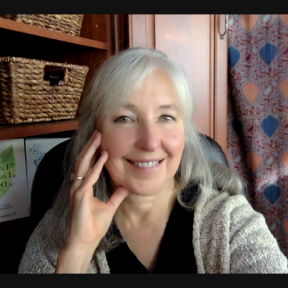Jim Schleckser on maximizing CEO Potential: Peer Groups, Constraints, and Effective Leadership Strategies
- Jim Schleckser on maximizing CEO Potential: Peer Groups, Constraints, and Effective Leadership Strategies Michael D. Levitt 28:56
Jim Schleckser is an accomplished leader, entrepreneur, and CEO coach with extensive experience across diverse industries. He is the Founder & CEO of The CEO Project, a renowned executive Coaching company specializing in high-revenue entrepreneurs. Jim offers a distinctive CEO coaching program that combines peer group discussions with personalized one-on-one coaching sessions led by former CEOs.
He advocates for the “Lazy CEO,” emphasizing efficient delegation and time management as essential traits for successful leadership. Jim employs diagnostic and strategic tools to identify business constraints and provide tailored advice to CEOs and offers a curated advisory board, providing CEOs with unbiased and valuable guidance.
Jim hosts The Lazy CEO Podcast, a successful podcast that focuses on entrepreneurship and CEO leadership and provides valuable insights to a wide audience. He is also the author of two impactful books: “Great CEOs are Lazy” and “Professional Drinking: A Spirited Guide to Wine, Cocktails and Confident Business Entertaining.”
https://theceoproject.com/
https://www.facebook.com/IncCEOproject
https://www.linkedin.com/in/jimschleckser/
https://www.instagram.com/the_ceoproject?igsh=djEyOGwxb3Y4NWZ2
https://www.tiktok.com/@theceoproject?is_from_webapp=1&sender_device=pc
https://X.com/the_ceo_project
Building High-Performing CEO Peer Groups
Jim discussed his work as a CEO advisor, focusing on building CEO peer groups or advisory boards. He emphasized the importance of surrounding oneself with high-performing individuals with humility and a desire to help others succeed. Jim shared his experience transforming companies from 7 million to 65 million dollars in revenue and how his work has positively impacted many people. Michael agreed with Jim’s approach, highlighting the power of directed effort and the importance of focusing on what truly moves the needle forward. He also noted the potential pitfalls of overloading one’s day and the benefits of a more streamlined approach.
Focus, Concentration, and Business Constraints
Michael and Jim discussed the importance of focus and concentration in achieving business objectives. Jim emphasized the concept of the “point of constraint” in business, which is a limiting factor that hinders Growth and revenue. He suggested that identifying and addressing this constraint is crucial for success. They also discussed periodically reassessing and adjusting the focus to maintain growth. The conversation was inspired by the work of Israeli physicist Eli Goldrat and his book “The Goal”.
Balancing Decisions, Comfort With ‘No’, and Adaptation
Jim and Michael discussed the importance of making tough decisions and being comfortable saying ‘no’.’They agreed that it’s not about what you say ‘yes’ to, but what you say ‘no’ to that defines you. They also touched on the need for a balance between optimism and realism and the ability to pivot in response to unexpected events. The conversation ended with a discussion on the role of CEOs in managing multiple tasks and adapting to changing circumstances.
Balancing Work and Personal Life as a CEO
Michael and Jim discussed the importance of managing energy and staying committed as a CEO. They agreed that occasional imbalances in work and personal life can be beneficial for achieving specific goals, but maintaining a balance is crucial for overall well-being. They also touched on being prepared to sprint when necessary by maintaining a certain level of energy and capacity. Michael emphasized the idea of being a ‘lazy CEO’ who works efficiently and effectively rather than overworking. Jim agreed, suggesting that working at an efficient 75-80% capacity allows for the necessary energy reserves to tackle challenges when they arise.
Stakeholder Involvement and Decision-Making Strategies
Michael and Jim discussed the importance of involving stakeholders in decision-making processes, using an example of a potential acquisition. They emphasized considering all stakeholders’ needs, including clients and healthcare professionals. They shared their experiences with the consequences of excluding key stakeholders. Jim highlighted the need for income diversification and an understanding of the auto sector’s cyclical nature. They also discussed understanding why customers buy from their organization, whether for speed, service, or pricing. Michael shared increasing productivity by 20% through process streamlining. Jim agreed on the importance of CEO Clarity and vision for better decision-making, suggesting working fewer hours could lead to more clarity.
Leadership Qualities and the Great Resignation
Jim and Michael discussed the importance of humility and openness in leadership, emphasizing the need for leaders to be approachable and admit when they’re wrong. They shared personal experiences and stories from other leaders to illustrate these points. They also discussed the qualities required for effective leadership, including a balance between confidence, expertise, humility, and the ability to read and resonate with the audience. They concluded that a leader should be competent yet compassionate to create a positive work environment.



























